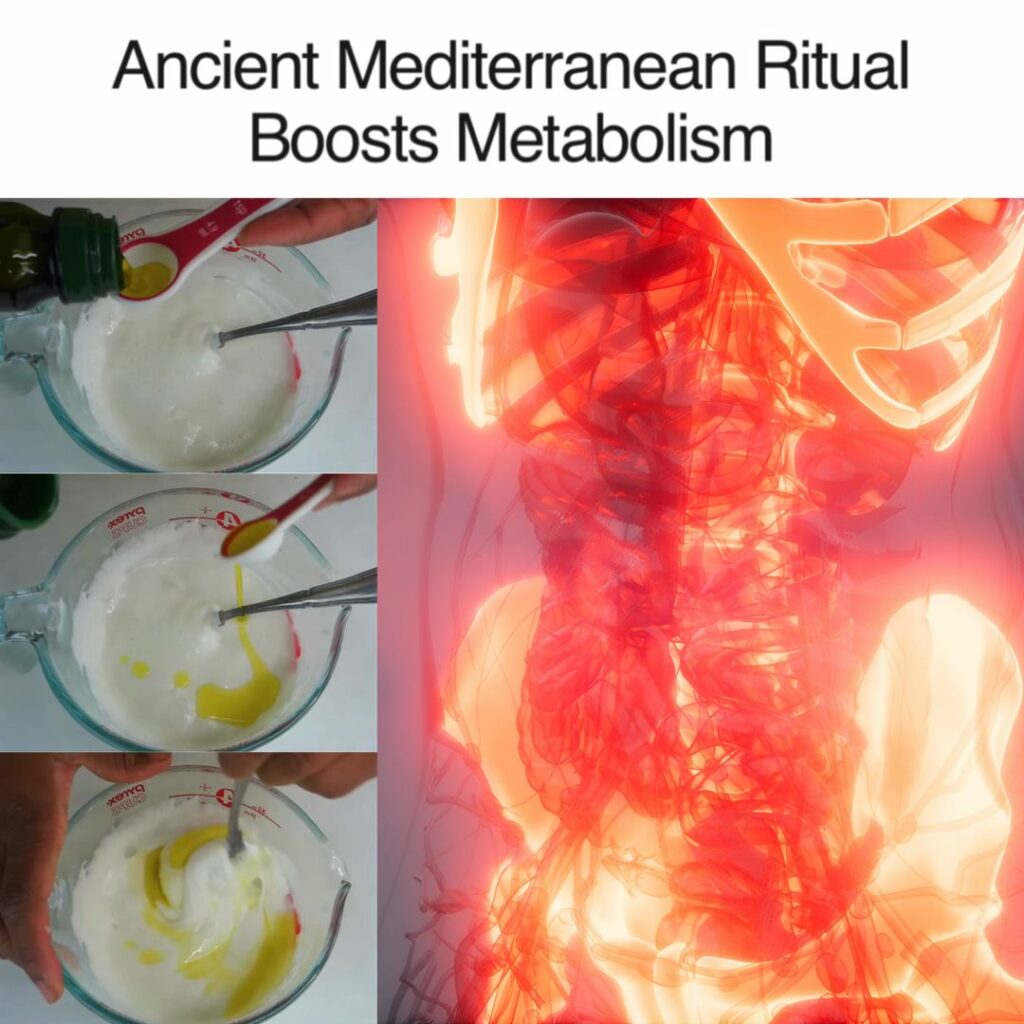The Mediterranean diet is often touted as a benchmark for healthy eating, drawing inspiration from the traditional dietary patterns of countries bordering the Mediterranean Sea. Characterized by a high consumption of vegetables, fruits, whole grains, legumes, and olive oil, it also includes moderate amounts of fish, poultry, dairy products, and red wine. The diet’s approach emphasizes variety and balance, with a focus on whole foods and minimally processed ingredients.

In addition to the well-acknowledged nutritional benefits, the Mediterranean diet is deeply rooted in a rich cultural history. It is more than just a list of foods; it represents a millennia-old heritage that intertwines cuisine with lifestyle and social customs. The diet mirrors the lifestyle of the region, which includes regular physical activity and a strong emphasis on family and communal meals. Embraced not only for its health gains but also for its sustainability and palatability, the Mediterranean diet has garnered attention worldwide and is considered a viable and enjoyable approach to long-term healthy eating.
Key Takeaways
- Emphasizes consumption of plant-based foods, healthy fats, and lean protein.
- Reflects a holistic lifestyle intertwining diet with culture and activity.
- Recognized for promoting health and longevity through balanced eating habits.
Historical Context

The Mediterranean Diet has deep historical roots in the cultures of Greece and Italy, reflecting a dietary pattern that is inextricably tied to the geography and agronomy of the region. Greece, often described as the cradle of the Mediterranean food tradition, embraced a diet centered on the “eternal trinity” of wheat, olive oil, and wine. This trinity symbolized the essence of Greek agriculture and was enriched by a culture of communal dining and sharing.
Italy contributed its own culinary customs to the Mediterranean Diet, with a focus on fresh, local ingredients and diverse cooking methods that showcased the Italian peninsula’s variety of produce and cultural influences. Pasta, a cornerstone of Italian cuisine, represents the adaptability and enduring nature of Mediterranean dietary habits.
Key Elements of the Mediterranean Diet in Historical Context:
- Wheat: Staple food in the form of bread and pasta.
- Olive Oil: Essential source of fat and flavor.
- Wine: Common A feature in social and religious rituals.
Traditional Food Sources:
- Fruits & Vegetables
- Fish & Seafood
- Legumes & Nuts
- Moderate amounts of Dairy & Meat
The diet’s historical longevity is attributable to its basis in seasonal eating, sustainable agricultural practices, and its role within various sociocultural festivals and celebrations. The festivals often encompass a sense of hospitality, a core value across both Greece and Italy, reinforcing the Mediterranean Diet as not just sustenance, but a way of life.
Core Components of the Mediterranean Diet

The Mediterranean Diet focuses on whole foods and heart-healthy fats. It emphasizes the consumption of a variety of plant-based foods alongside moderate amounts of proteins and complex carbohydrates.
Dietary Fats and Healthy Oils
At the heart of this diet is olive oil, a monounsaturated fat that can help reduce the risk of heart disease. The preference is for extra-virgin olive oil as a primary fat source. Traditional dishes often incorporate healthy fats into every meal, such as adding a drizzle of olive oil to salads and cooked vegetables.
Fruits and Vegetables
Fruits and vegetables are abundant in the Mediterranean Diet, providing essential vitamins, minerals, and fiber. A typical meal might include a variety of colorful vegetables like tomatoes, spinach, and onions, and fruits such as berries and citrus fruits often serve as desserts.
High-Quality Proteins
Proteins in the Mediterranean Diet consist mainly of fish, such as salmon and tuna, chosen for their omega-3 fatty acids. Poultry, eggs, and modest amounts of red meat supply additional protein but are consumed less frequently.
Whole Grains and Legumes
Whole grains such as quinoa, barley, and brown rice are staples, while legumes including beans, lentils, and chickpeas provide ample fiber and protein, forming the base of many meals instead of processed grains.
Nuts and Seeds
Nuts like walnuts and almonds, and various seeds are eaten in moderation. They are cherished for their healthy fats, proteins, and fiber content, and are often used to add texture to dishes or as a snack.
Dairy Products
Dairy is included in the form of cheese and yogurt. Options such as Greek yogurt, feta, and other traditional cheeses are consumed in their less processed forms, often in a moderate portion.
Herbs and Spices
Lastly, the use of herbs and spices such as oregano not only adds flavor to the dishes without extra salt but also provides additional health benefits through their antioxidant properties.
Health Benefits

The Mediterranean diet has gained recognition for its significant impact on various aspects of health, including the prevention of chronic diseases and the enhancement of mental well-being.
Heart and Cardiovascular Health
The Mediterranean diet, which emphasizes fruits, vegetables, whole grains, and healthy fats like olive oil, is well-known for its heart-healthy benefits. Studies have shown that adhering to this dietary pattern can lower the risk of heart disease and cardiovascular disease by improving blood pressure and cholesterol levels. A comprehensive review by the Mayo Clinic underscores the diet’s effectiveness in reducing the risk of heart disease, highlighting its low content of red meat, sugar, and saturated fat.
Metabolic and Endocrine Impact
It has been observed that those following a Mediterranean diet have a lower incidence of type 2 diabetes. This is attributed to the diet’s potential to improve insulin sensitivity and aid in weight loss, which are crucial for managing diabetes and reducing obesity-related complications. The diet’s high fiber content and complex carbohydrates contribute to a more stable blood sugar level, providing a stable metabolic environment.
Cancer Prevention and Anti-Inflammatory Effects
Evidence suggests that the Mediterranean diet may contribute to cancer prevention due to its rich array of antioxidants and anti-inflammatory foods. Ingredients such as fruits, vegetables, and healthy oils work to reduce inflammation in the body, which can lower the risk of cancer development. Moreover, the consumption of certain plant-based foods has been linked with a reduction in inflammation, providing protective effects against various forms of cancer.
Longevity and Wellness
Adopting the Mediterranean lifestyle goes beyond dietary choices, encompassing physical activity and social engagement, which together contribute to increased longevity and wellness. The diet’s balance of lean protein, healthy fats, and nutrient-dense foods supports a healthy weight and overall well-being. Regular consumption of heart-healthy olive oil and antioxidant-rich red wine, in moderation, are characteristic components that may contribute to a longer lifespan.
Cognitive Function and Mental Health
An important aspect of the health benefits of the Mediterranean diet is its positive influence on cognitive function and mental health. Research has indicated that this dietary pattern may reduce the risk of dementia and support cognitive health well into older age. A study published in March of 2023 followed more than 60,000 participants, finding a link between the diet and a lower risk of dementia. In addition to cognitive benefits, the diet’s richness in omega-3 fatty acids and other nutrients supports overall mental well-being.
Diet Implementation

Implementing the Mediterranean Diet involves thoughtfully planning meals, selecting quality foods, moderating portion sizes, incorporating physical activity, and managing beverage consumption, particularly alcohol.
Meal Planning and Recipes
One should plan meals around plant foods, legumes, and whole grains, paired with healthy fats like olive oil. Breakfast might include Greek yogurt with fresh fruit and a drizzle of honey, while lunch can feature a salad dressed in olive oil and vinegar or a hummus dip with vegetables. Sourcing recipes that emphasize these components is crucial for success.
Shopping and Food Selection
When shopping, choose fresh and unprocessed ingredients. Prioritize fresh fruit, vegetables, and fiber-rich foods. Select lean proteins like fish or chicken and purchase whole grains such as quinoa or farro. Avoid items with added sugars or refined oils.
Portion Sizes and Moderation
For portion control, use smaller plates and bowls to encourage moderation especially of high calorie foods. Embrace the Mediterranean practice of eating slowly and savoring each bite, which naturally helps in eating less.
Lifestyle and Physical Activity
The Mediterranean Diet is more than just food; it’s a lifestyle embracing daily physical activity. This doesn’t necessarily mean structured exercise, but can include gardening, walking, or cycling, activities that increase energy expenditure in a sustainable way.
Alcohol and Beverages
Moderate alcohol consumption, especially of red wine, is part of this diet, aligning with the cultural practice of enjoying a glass with meals. However, it’s essential to limit intake. Non-alcoholic options like water and herbal teas should be the mainstay for hydration.
Cultural and Social Aspects

The Mediterranean Diet transcends mere food choices, encompassing a tapestry of cultural and social practices. Central to these practices is the emphasis on family and community. Meals are often a collaborative effort, with family members gathering to prepare dishes, which strengthens familial bonds. The act of cooking itself becomes a conduit for passing down culinary traditions and knowledge.
Meal times in the Mediterranean are unhurried, illustrious affairs, where food is almost a language through which people commune. They are not just occasions to eat but to foster social connections. In the Mediterranean culture, extended meal times serve as a platform for discussion and sharing.
Social eating is another cornerstone, with locals frequently dining in groups—be it in homes or at communal feasts. These get-togethers feature a variety of dishes shared amongst diners, cementing a sense of community and belonging. Moreover, there’s an inherent respect for seasonal ingredients, which dictates the rhythm of dietary patterns, thereby tying the diet to the land and its cycles.
- UNESCO’s recognition of this diet underscores not only its health benefits but also its value as an intangible cultural heritage. The Mediterranean lifestyle, with its blend of diet and social customs, offers a holistic approach to well-being, linking nutrition to the fabric of cultural and social life.
Challenges and Considerations

Adopting the Mediterranean diet requires careful consideration regarding cost, accessibility, dietary needs, and environmental factors. Attention must also be given to dispelling common misconceptions to ensure a balanced and sustainable approach.
Cost and Accessibility
The Mediterranean diet emphasizes the consumption of fresh seafood, olive oil, and nuts, which can lead to higher grocery bills. However, focusing on local and seasonal produce may help manage these costs. Accessibility to high-quality ingredients is another barrier, as they may not be readily available in all regions, necessitating a flexible approach to the diet.
Adaptation to Dietary Restrictions
Dietitians often recommend the Mediterranean diet for its health benefits, but adaptations may be required for those with dietary restrictions or allergies. For instance, the diet is rich in plant foods and lean proteins, which can be advantageous, but those with nut allergies or lactose intolerance will need to find suitable alternatives to maintain the diet’s nutritional integrity.
Misconceptions and Myths
The diet’s popularity has led to a spread of misinformation and myths. One such misconception is the overconsumption of processed foods that are marketed as “Mediterranean.” It’s crucial to understand that the true Mediterranean diet is low in saturated fats and processed foods, focusing instead on whole grains, fruits, vegetables, and healthy fats.
Environmental Impact and Sustainability
The Mediterranean diet encourages the consumption of plant-based foods, which have a lower environmental impact compared to diets high in meat and dairy. This aligns with greater sustainability practices; however, the increased demand for specific products like olive oil may have an adverse environmental effect if not managed responsibly. The key is balancing dietary choices with consideration for long-term environmental sustainability.
Expert Opinions and Case Studies

The Mediterranean diet is lauded for its health benefits, substantiated through numerous studies and personal accounts. This section delves into the expert analysis and real-world applications of this diet.
Nutritional Research and Studies
Nutritional research has consistently shown the Mediterranean diet to be beneficial in promoting heart health and aiding weight loss. A study highlighted by the New York Times sheds light on the diet’s positive impact. Moreover, further research mentioned in PubMed suggests its effectiveness in improving longevity and mental health.
- Study Highlights:
- Reduction in heart disease risks
- Improvement in longevity and mental well-being
Personal Success Stories
Individuals often report positive outcomes after integrating the Mediterranean diet into their lifestyles, citing not only physical but also mental benefits. Weight loss and improved vitality are common themes within these personal experiences. These anecdotal validations provide a human element to the data-driven research.
- Personal Accounts:
- Improved energy levels and vitality
- Sustained weight loss and well-being
Dietitian Recommendations
Dietitians frequently advocate for the Mediterranean diet based on its diverse and nutrient-rich food spectrum. They underscore its balance of healthy fats, fruits, vegetables, and lean proteins. The advice from dietitians often includes easy-to-follow guidelines to ensure that individuals can incorporate the diet into their daily routines effectively.
- Dietitian Advice:
- Emphasize fruits, vegetables, whole grains, and lean proteins
- Incorporate healthy fats such as olive oil and nuts
Cultural Insights
Cultural insights reveal that the Mediterranean diet is more than a set of food guidelines; it’s a lifestyle that is deeply rooted in the traditions of the Mediterranean region. A symbiotic relationship exists between the regional diets and their inhabitants’ health. These dietary customs offer a blueprint for healthy eating that extends beyond mere nutrition.
- Regional Diets:
- Olive oil, fruits, and vegetables as diet staples
- Traditional preparation methods that preserve nutrient integrity
Conclusion

The Mediterranean diet is recognized for its nutritional richness and health benefits. Emphasizing a high intake of plant-based foods, moderate amounts of dairy and meat, and a preference for olive oil, this diet aligns with a philosophy of balance and quality of nourishment.
- Primary Components:
- Fruits and vegetables
- Nuts, beans, and whole grains
- Olive oil as a primary fat source
- Moderate consumption of fish and poultry
Research underscores that following this diet can lead to a reduced risk of chronic diseases. In particular, heart health and blood sugar regulation are greatly influenced by the dietary staples found within this lifestyle approach.
- Health Benefits:
- Cardiovascular wellness: Regular inclusion of heart-healthy fats and fibrous foods supports cardiovascular function.
- Blood sugar management: Whole grains and legumes promote stable blood sugar levels.
Final thoughts suggest that for sustained weight management and overall well-being, the Mediterranean diet offers a feasible and enjoyable blueprint. It is a lifestyle steeped in the enjoyment of food, company, and the natural environment.
- Final Thoughts:
- The diet encourages long-term sustainability.
- It meshes nutritious eating with cultural traditions, reflecting a holistic approach to food consumption.
As such, individuals looking for an effective and enjoyable way to improve their health might consider adopting the Mediterranean diet’s principles into their daily routine.
Frequently Asked Questions

The Mediterranean diet, recognized for its health benefits and cultural significance, revolves around staple foods and has been linked to weight management and chronic disease prevention. This section answers common queries about this dietary pattern.
What are the foundational foods of a traditional Mediterranean diet?
The traditional Mediterranean diet centers on a high intake of vegetables, fruits, whole grains, nuts, and legumes. It also includes moderate amounts of seafood and poultry, with a focus on incorporating healthy fats, particularly olive oil.
How does the Mediterranean diet contribute to weight loss?
Weight loss on the Mediterranean diet may arise from its emphasis on plant-based foods and healthy fats, which can help maintain satiety. It also discourages the intake of processed foods and added sugars that are often linked to weight gain.
What is a typical meal plan for someone following the Mediterranean diet?
A typical meal plan includes a variety of vegetables, fruits, whole grains, and healthy fats like olive oil with each meal. Fish and seafood are eaten regularly, while red meats are consumed less frequently.
Can the Mediterranean diet help with chronic health conditions?
Yes, the Mediterranean diet may reduce the risk of chronic conditions such as heart disease, type 2 diabetes, and certain cancers due to its inclusion of nutrient-dense, antioxidant-rich foods and healthy fats.
What role do oils play in the Mediterranean diet?
Olive oil is the principal source of added fat in the Mediterranean diet, used not just for cooking, but also as a dressing and flavor enhancer. It provides monounsaturated fats, which are heart-healthy compared to other fat sources.
What are the potential health benefits of the Mediterranean diet?
The key benefits include reducing the risk of heart disease, improving weight management, lowering the risk of Alzheimer’s disease, and extending life expectancy. It’s also associated with a lower risk of strokes in women and overall mortality.
